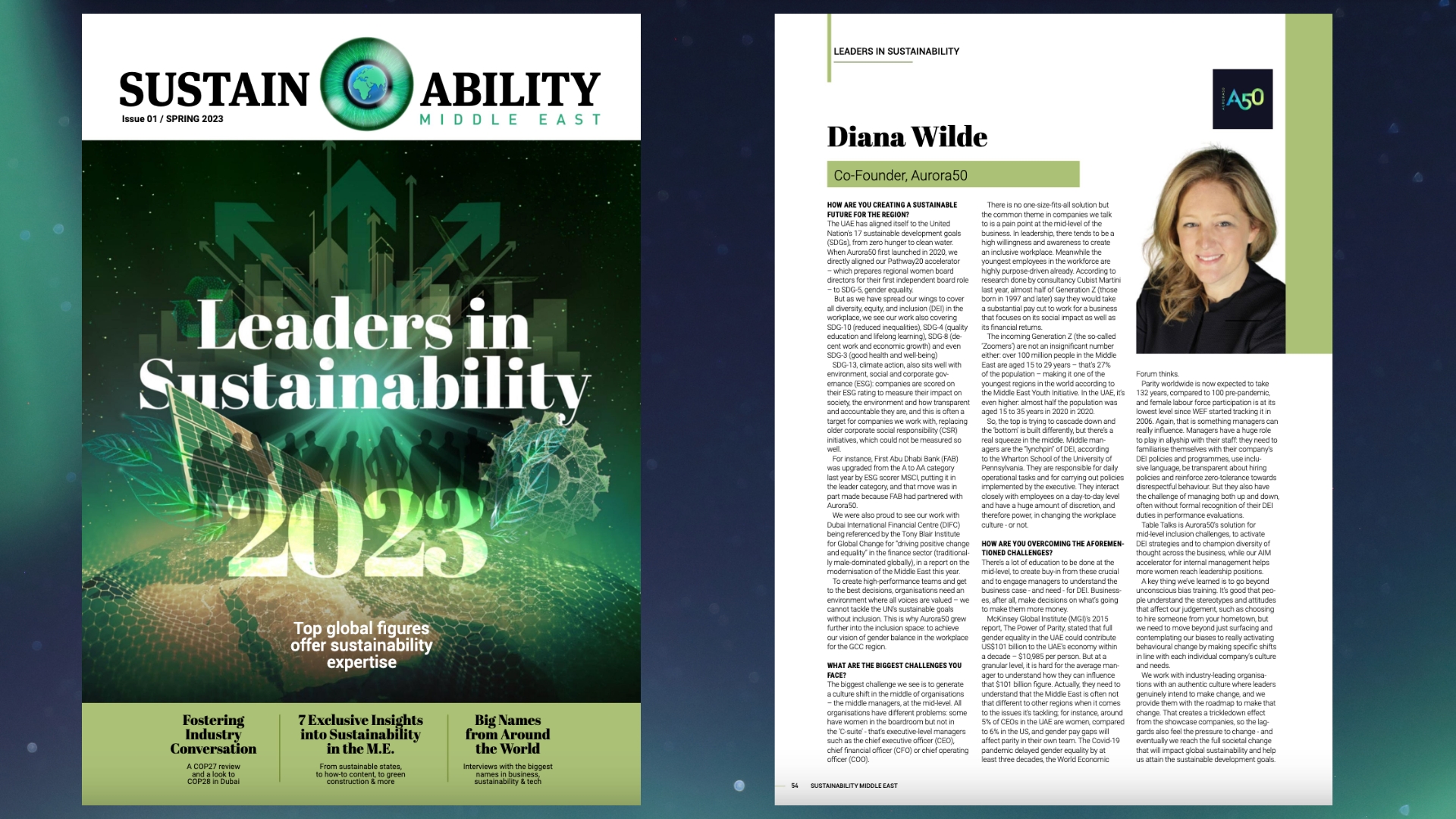In its launch issue, new magazine Sustainability Middle East asked Aurora50 co-founder Diana Wilde how she was creating a sustainable future for the region and what the biggest challenges were.
Ms Wilde told the magazine that Aurora50’s work in the diversity, equity and inclusion (DEI) space meant it was aligned to the United Nation’s 17
sustainable development goals (SDGs), including SDG-5 (ender equality) and SDG-13 – climate action.
“SDG-13, climate action, also sits well with environment, social and corporate governance (
ESG),” she said. “Companies are scored on their ESG rating to measure their impact on society, the environment and how transparent and accountable they are, and this is often a target for companies we work with, replacing older corporate social responsibility (CSR) initiatives, which could not be measured so well.
She added: “To create high-performance teams and get to the best decisions, organisations need an environment where all voices are valued – we cannot tackle the UN’s sustainable goals without inclusion.
“This is why Aurora50 grew further into the inclusion space: to achieve our vision of gender balance in the workplace for the GCC region.”
In terms of challenges, she said creating a culture shift in the middle of organisations, in managers, was the biggest pain point for Aurora50’s clients.
“In leadership, there tends to be a high willingness and awareness to create an inclusive workplace,” she said. “Meanwhile the youngest employees in the workforce are highly purpose-driven already.
“But there’s a real squeeze in the middle.
“There’s a lot of education to be done at the mid-level,” she added, “to create buy-in from these crucial and to engage managers to understand the business case – and need – for DEI.
“Businesses, after all, make decisions on what’s going to make them more money.”
Female labour force participation is at its lowest level since the World Economic Forum started tracking it in 2006, she said. “That is something managers can really influence.
“Managers have a huge role to play in
allyship with their staff: they need to familiarise themselves with their company’s DEI policies and programmes, use inclusive language, be transparent about hiring policies and reinforce zero-tolerance towards disrespectful behaviour.
“But they also have the challenge of managing both up and down, often without formal recognition of their DEI duties in performance evaluations.”
[Table Talks is Aurora50’s programme for mid-level inclusion, to activate DEI strategies and to champion diversity of thought across the business, while our AIM accelerator for internal management helps more women reach leadership positions.]




